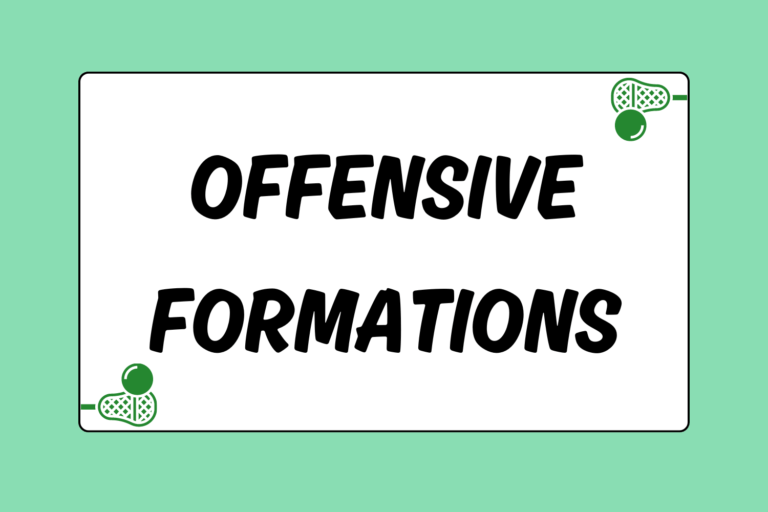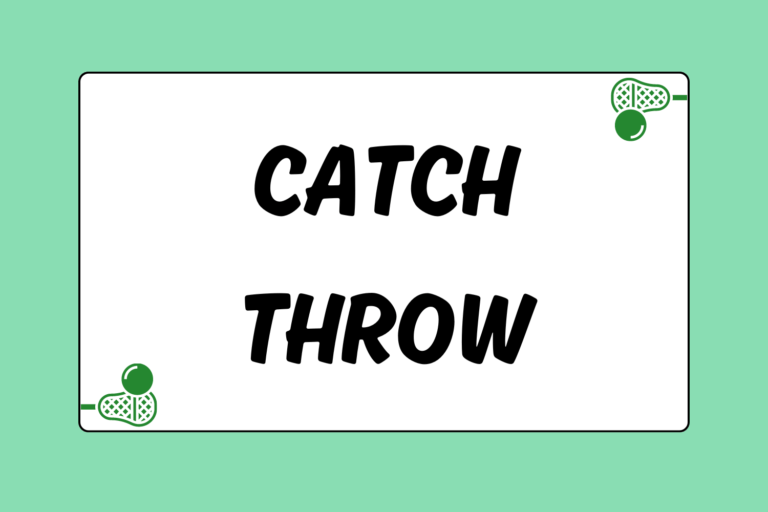Moving up to a higher level of lacrosse means you have to be able to adjust to the pronounced differences in the game. Bigger, faster, stronger players dominate the college landscape with much more frequency than what you might’ve seen in your high school league. At the high school level, players can get away with not having their game totally refined, and many can get by on natural athleticism.
College is a whole different animal, though. As long as you possess a certain amount of skill and/or athleticism, Work ethic and dedication to the game are what can take you a long way. Let’s dig deeper to find out what you’ll need to succeed in college, and how you can achieve that.
Work Ethic
Players who want to dominate in the college game need to have a great work ethic. All the players in college are talented, but the difference is that some are willing to work hard, and some are content to get by on natural talent alone. Those that are willing to put in the extra hours of work every day will see the results they want. At the college level, players have access to better facilities and coaches with a deeper knowledge base. All of these resources must be taken advantage of if you want to reach your maximum potential. The times when no one is watching are when you must be working your hardest. Obviously, when the coach is around you will want to outshine others, but in order to really make the most of your abilities, you’ll need to put in the extra work behind the scenes.
Take advantage of your school’s workout facilities above and beyond what is mandated by the team. Those mornings in the offseason when you don’t have class for three more hours, or over the summer when the dog days have set in… go lift weights! Perfect a cardio routine. Get teammates to join you. Leadership and chemistry can both be developed through work ethic. Getting teammates to buy in to the amount of work it takes to excel is one of the easiest ways to earn respect and bond with your buddies on the squad.
Earning Your Keep
A lot of really athletic players get to college and have to adjust to a reduced role on their new team. Guys that were offensive stars in high school are suddenly role players slotted at defensive midfield. If you find yourself in this spot, accept the role your coach has given you. Show that you’re dedicated to improving, and that you are a team-first guy. Accepting and embracing your role will show the coach that your mind is right. Expect to work hard to earn the starting spot you want, and you may see results as early as your sophomore year. Never lose sight of the fact that you must have a team-first attitude all the time.
Sharp Shooting
As you move up levels of play to the college game, the goalies you’ll face become almost exponentially more talented. This places a premium on the ability to shoot with both power and accuracy. Luckily for you, shooting is something that can be improved through lots of individual work, both with and without the stick in your hands.
Start by making sure to lift weights and strengthen the correct areas and muscles. Most of the power in your shots comes from your legs and core, so those are the areas where you’ll need to put the most work. Don’t ignore the rest of your upper-body, either. The wrists and forearms play a big part in shooting, so be sure to do exercises to strengthen them as well.
On the field, the best way to improve your shooting is to hang around after practice either by yourself or with a few teammates and put in 30-60 minutes worth of extra work. Whenever possible, try to shoot with a goalie in the cage. Pick your goalie’s brain. Ask him which shots are the most difficult to stop.
Another aspect of shooting to master is different types of shots. While the old-school, straight over the shoulder release is generally your best bet, you’ll need more variation in your shooting to consistently score goals at the college level.
Master these types of shots:
• Low-to-high (low release to top pipe)
• Low-to-low (low release, low shot)
• High-to-high (high release, high shot)
• High-to-low (high release, low shot)
• Release points ranging from three-quarters to underhand
Sizzling Speed
Everyone knows the old adage – speed kills. Teams with burners all over the field consistently find themselves winning games and competing for championships. While elite speed cannot truly be “taught,” there are things that you can do to improve your overall speed and quickness.
Foot speed is a major factor in beating defenders with dodges. This is more about using your feet to get into space with your hands free, rather than simply being fast and beating someone to the cage or up the field. There are numerous great footwork drills that you can do to improve overall foot speed. The most effective ones involve an agility ladder.
Laying the ladder out flat, start with basics like placing one foot in each square, concentrating on foot placement within the squares (same spot in the rung every time). As you get more comfortable running through the ladder, increase your speed and try to go through at a faster pace while still maintaining good foot placement within the squares.
Once you’ve gotten acquainted with the basics, you should move on to more advanced footwork drills. Work on lateral movement (to help your split dodge), as well as going through your ladder routine with a stick and ball in your hands. Using the stick for your workout allows your body to become comfortable synchronizing the lower body movement with the upper body stick protection and placement. Muscle memory can and should be developed as much as possible.
Fantastic Field Vision
Field vision is normally a quality used in reference to an offensive player, but the need for it really applies to all positions on the field. Field vision is the ability to see the action across the whole field, rather than just what’s right in front of you as you carry the ball or cut.
Field vision by position:
• Attackmen must be able to drive with their head up and know when and where teammates will be open for feeds.
• Midfielders should be able to quickly move the ball after drawing a slide.
• Defensemen must account not only for their man at all times, but also the possibility of having to slide for a double team. They must also be able to find open teammates in the clearing game.
Goalies need to have better field vision than any other position. A goalie must command the defense at all times, calling out everything the offense is doing both on-ball and off. Cuts, picks, feeds, formation shifts – you name it, the goalie has to account for it and relay the information to his defense.
High Lacrosse IQ
Someone can be the fastest runner, biggest hitter, or hardest shooter on the team, but it won’t matter if he doesn’t possess a high lacrosse IQ. Lacrosse IQ means having an in-depth understanding of what’s happening on the field, as well as why, how, when and where it’s all taking place. Building a lacrosse IQ comes through years of studying the game.
Watch as much lacrosse as you can. Whether it’s low-level youth teams, or high-caliber professional squads, be a sponge when you watch. Study the best players and figure out what they are doing to be successful. Try new things in practice – learn your limitations as a player, and then find ways to avoid putting yourself in game situations where those limitations might be exposed and exploited.
A big part of lacrosse IQ is understanding your opponent’s strengths, weaknesses and tendencies. At the college level, film study and advanced scouting are a huge part of game preparation. During film study, try to focus as much on the negatives as you do on the positives. Try to identify things that either you individually, or the team as a whole did poorly, and how to correct those things. Then, apply what you’ve learned through film study on the practice field.
Put in the Hours
While it may seem like a daunting task to physically and mentally get where you need to be to thrive at the college level of lacrosse, the hard work will be well worth the hours of effort you put in. Even if you aren’t the world’s most naturally gifted athlete, there are ways to imprive your body and mind’s athletic prowess. Be a student of the game, and put in those extra hours at the gym and in the weight room. You will see results on the field.





